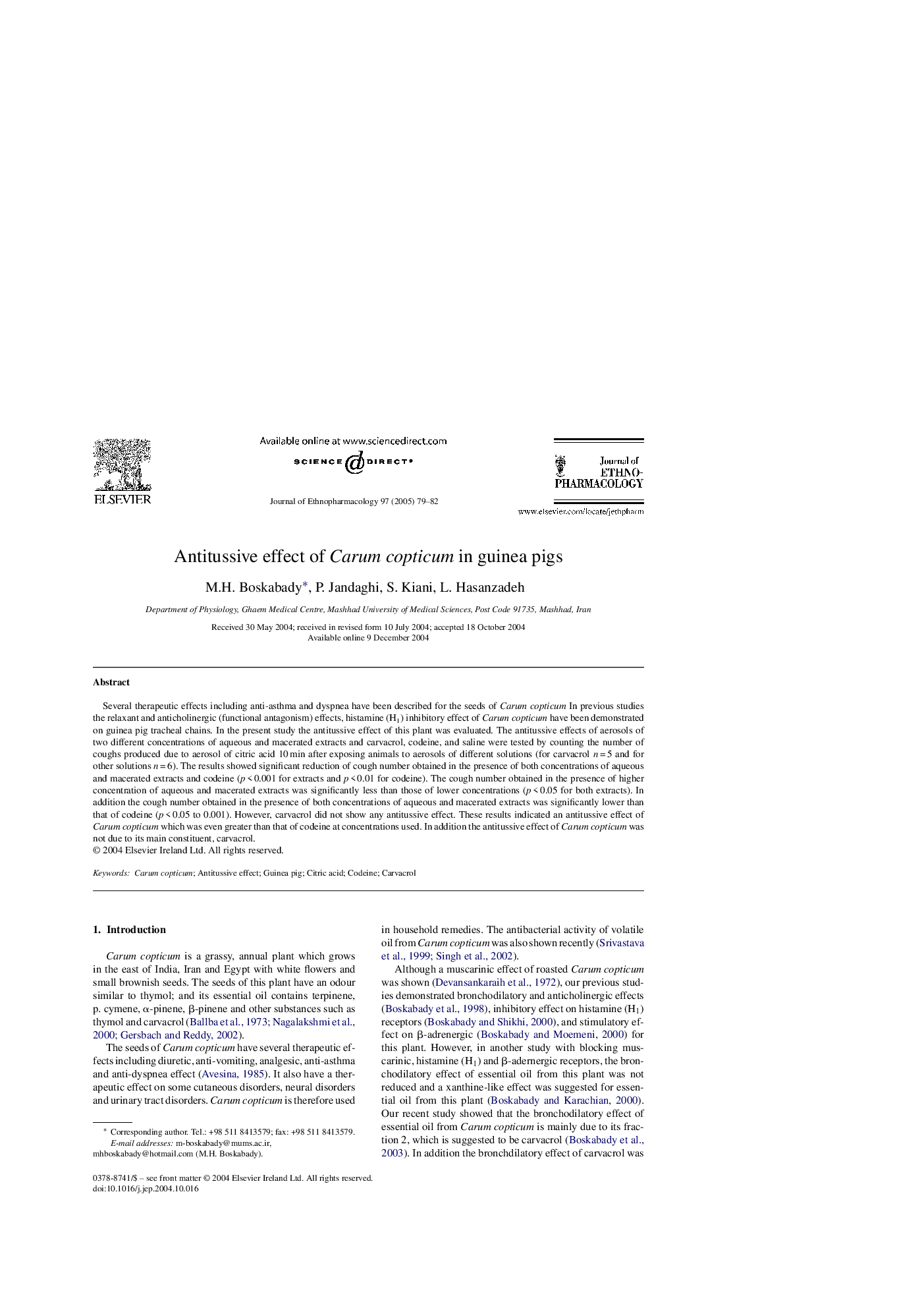| Article ID | Journal | Published Year | Pages | File Type |
|---|---|---|---|---|
| 9009775 | Journal of Ethnopharmacology | 2005 | 4 Pages |
Abstract
Several therapeutic effects including anti-asthma and dyspnea have been described for the seeds of Carum copticum In previous studies the relaxant and anticholinergic (functional antagonism) effects, histamine (H1) inhibitory effect of Carum copticum have been demonstrated on guinea pig tracheal chains. In the present study the antitussive effect of this plant was evaluated. The antitussive effects of aerosols of two different concentrations of aqueous and macerated extracts and carvacrol, codeine, and saline were tested by counting the number of coughs produced due to aerosol of citric acid 10 min after exposing animals to aerosols of different solutions (for carvacrol n = 5 and for other solutions n = 6). The results showed significant reduction of cough number obtained in the presence of both concentrations of aqueous and macerated extracts and codeine (p < 0.001 for extracts and p < 0.01 for codeine). The cough number obtained in the presence of higher concentration of aqueous and macerated extracts was significantly less than those of lower concentrations (p < 0.05 for both extracts). In addition the cough number obtained in the presence of both concentrations of aqueous and macerated extracts was significantly lower than that of codeine (p < 0.05 to 0.001). However, carvacrol did not show any antitussive effect. These results indicated an antitussive effect of Carum copticum which was even greater than that of codeine at concentrations used. In addition the antitussive effect of Carum copticum was not due to its main constituent, carvacrol.
Related Topics
Health Sciences
Pharmacology, Toxicology and Pharmaceutical Science
Pharmacology
Authors
M.H. Boskabady, P. Jandaghi, S. Kiani, L. Hasanzadeh,
